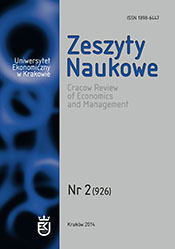Prawnofinansowe konsekwencje wprowadzenia stanu nadzwyczajnego
The Legal-financial Consequences of Implementing a State of Emergency
Author(s): Wojciech FillSubject(s): Law, Constitution, Jurisprudence
Published by: Wydawnictwo Uniwersytetu Ekonomicznego w Krakowie
Keywords: state of emergency; sanative procedure; expense disciplining rule; budget reserves; transfer of expenses; fiscal discipline; procedure for excessive deficit
Summary/Abstract: Acts regulating principles of operation of the state do not contain legal-financial norms during a state of emergency. The constitutional principle of the uniqueness of states of emergency leads one to believe, however, that the unusual nature of the situation in which a state and its citizens are in during a state of emergency justifies the taking of financial decisions legally that would in other circumstances be unacceptable. This thesis seems to be confirmed by the Public Finance Act, which provides for the exemption, at the time a state of emergency is introduced, of certain regulations concerning, among other things, the rigours associated with so-called disciplinary rule expenditure, the division of specific provisions and general provision and effecting transfers of budget expenditures, but above all of restrictions associated with implementing prudent and sanative procedures. The question therefore arises as to how far, in the purview of financial law, an executive branch, endowed with special powers during the state of emergency, can actually go without sacrificing its status as a legal democracy.
Journal: Zeszyty Naukowe Uniwersytetu Ekonomicznego w Krakowie
- Issue Year: 926/2014
- Issue No: 02
- Page Range: 55-70
- Page Count: 16
- Language: Polish

